7 Effective Time Management Tips For Students
I regularly see students who pack their schedules with so many extracurricular activities that their studies start to suffer, while others thrive under pressure.
I also come across students with minimal commitments who struggle to plan their day, often spending more time checking their Snapchat streaks than studying.
The difference between students who are busy and successful and those with too much free time and failing is effective time management.
No matter where you fall on the ‘busy’ spectrum, managing your time effectively is key to advancing in your studies, career, and extracurricular activities.
Whether you're an overachiever, a procrastinator, or a perfectionist, you need to know your daily schedule inside out to make the most of your time! Here are a few handy tips and tricks I recommend to my students for planning their week to have effective time management:
Tip 1. Use a Diary
It doesn’t matter what format it comes in—just use one!
Using a diary is one of the simplest ways to manage your time. How you use your diary will determine how effectively you manage your time. The most important thing is to make your diary work for you.
I believe you can’t go wrong if you write everything down in one place. Scattering reminders on different pieces of paper will lead to confusion, especially when you have lots of loose sheets flying around.
So, first things first, head to a shop and buy a notebook. Write everything down in there. If pen and paper aren’t your style, use technology to your advantage. Set reminders on your phone, share your Google calendar with colleagues and friends, or use popular organisational apps like Trello or Asana.
Think of pen and paper as your tools for building organisation. If they don’t work for you, it’s like trying to build a house with an axe. Find a hammer that suits you better.
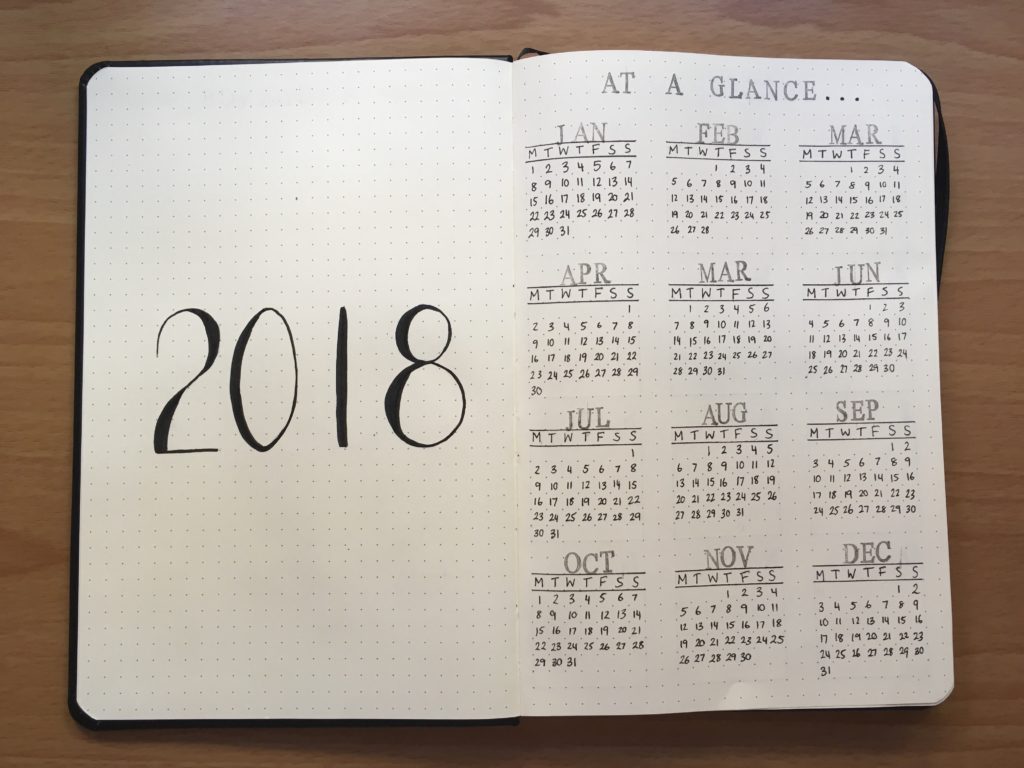
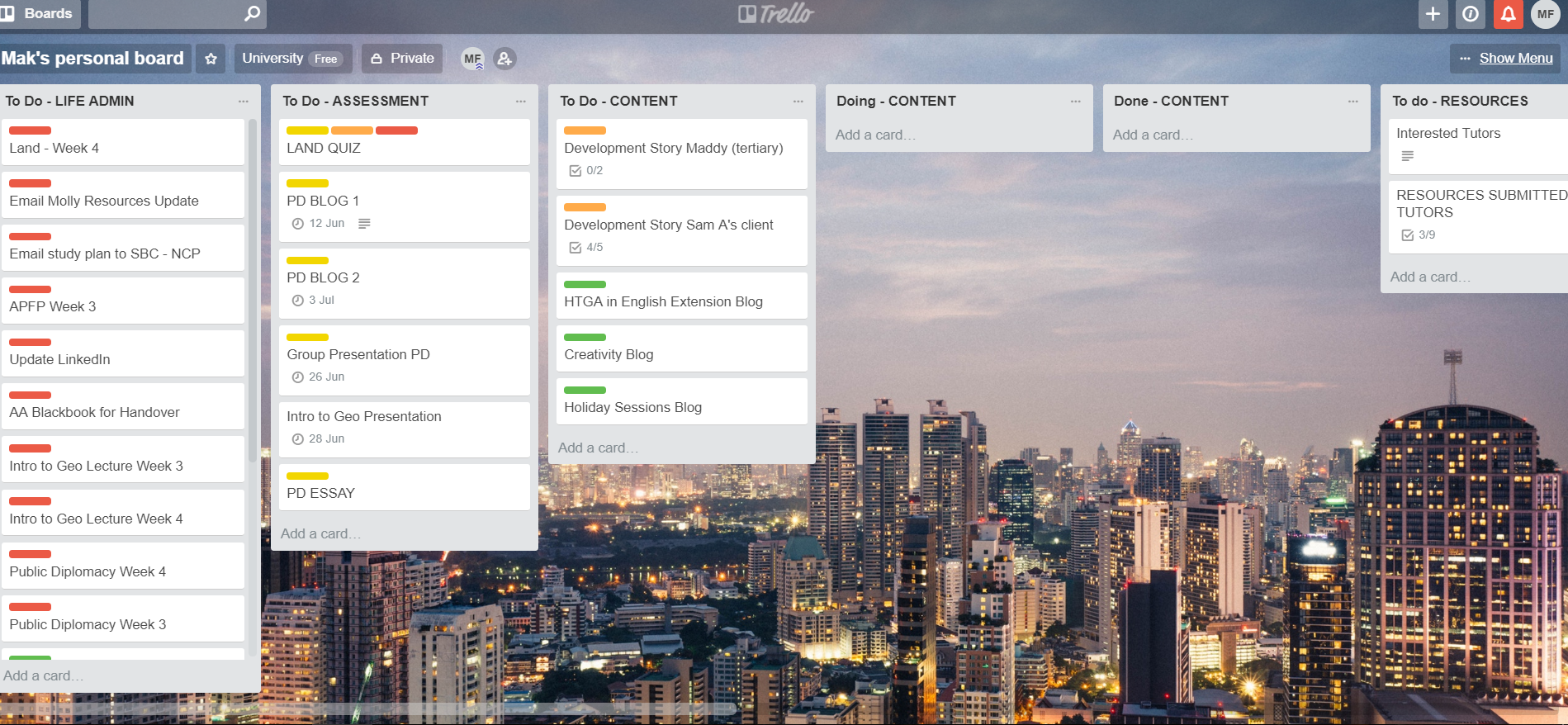
Next step: personalise your method! Personalising a diary lets you be creative and reflect your personality on paper. If you need a motivation boost to start ticking off your daily tasks, add some inspirational quotes or a weekly goals page.
Ticking off accomplishments at the end of the week is a little reward for yourself. If those goals build towards bigger goals, you can see the path you need to take to achieve them.
A diary is a daily tool, so make it look appealing! If you’re using an online app like Trello, be creative with your boards. Set your background to an image of a place you wish to visit—it’ll motivate you to work harder!
Tip 2. Prioritise!
Prioritising your commitments is essential, especially if you tend to overcommit. Always know when something is due!
If you get an assignment due at the end of the term, note that due date in your diary or on Trello right away. Even mark it with a sticky note so you know you have an upcoming task.
A trick some students use is marking commitments with different colours based on their priority. Use red for high-priority items, yellow for medium-priority, and green for those due later. Work through the red items first, then yellow, and finally green.
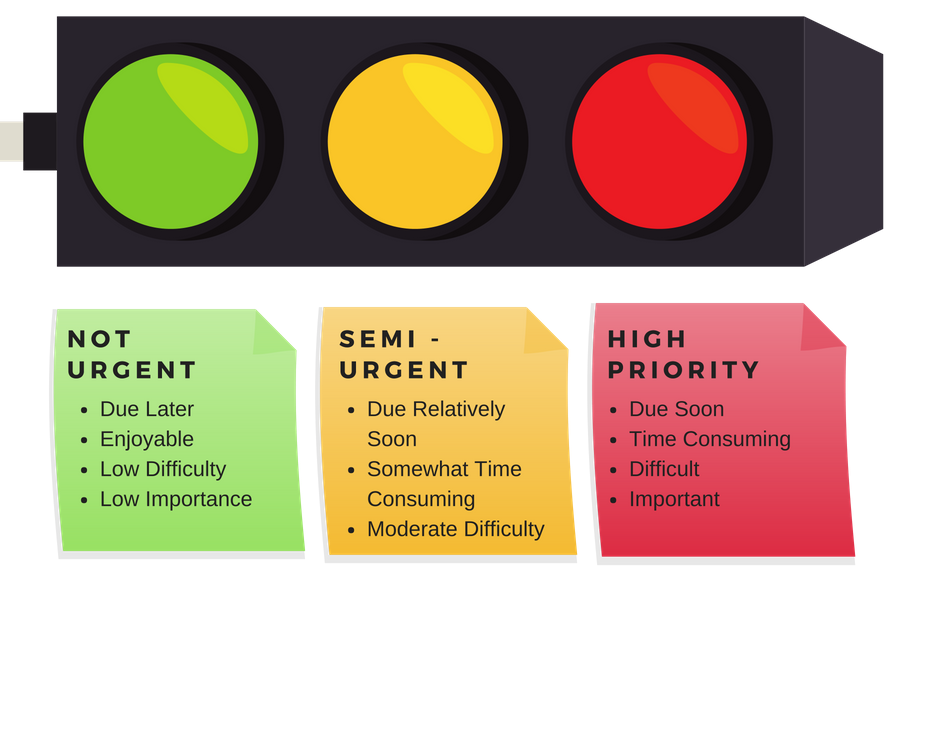
Tip 3. Take regular study breaks
Regular breaks are crucial for peak academic performance. Your ability to process information diminishes the longer you study. So, the longer you study without breaks, the less productive you become.
The Pomodoro Technique is a recommended method. Spend 25 minutes on a task, then take a 5-minute break. After four 25-minute sessions, take a longer break of 15-30 minutes to recharge.
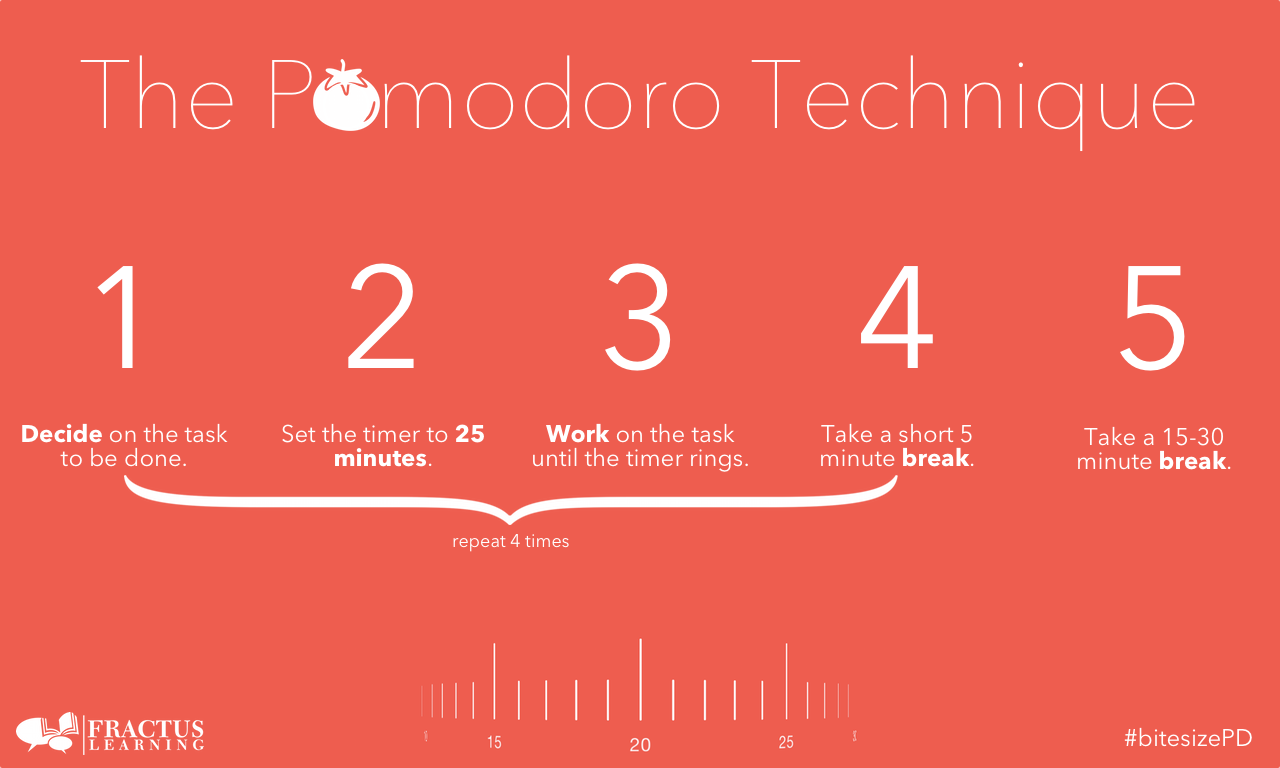
Alternatively, try the ‘power hour’ technique: study for an hour, then take an hour break.
Switching study modalities can also help. Alternate between reading, drawing diagrams, and watching videos to keep things fresh and aid knowledge retention.
These techniques prevent overlearning, where prolonged study sessions decrease your ability to recall information. Instead, stagger your learning for the best results and give your brain a chance to rest.
Tip 4. Say goodbye to procrastination
Procrastination is normal, but excessive procrastination is problematic. To minimise procrastination, eliminate distractions.
Social media is a big one. Close your Facebook tab and log out if you must. Put your phone on ‘do not disturb’. Mute group chats and turn your phone face down.
Notifications can distract you, causing you to lose focus and waste time refreshing your memory. This could add up to an hour of wasted time!
Sometimes procrastination stems from fear of failure. Students might put off assignments or avoid tasks because they’re unsure what to write or feel overwhelmed. This anxiety can lead to further avoidance.
Acknowledge what’s preventing you from completing work and plan a method to tackle it. Simply talking about why you’re procrastinating can help reduce feelings of being overwhelmed.
Tip 5. Schedule time for yourself
While staying busy is important, your mental health and wellbeing are paramount.
Make sure you schedule time for yourself. If you’re eating lunch at your desk while trying to finish work or consistently putting off self-care activities like going to the gym or attending social events, you need to make a change.
Decide what activities you want to do in your ‘me’ time. Be specific. Instead of just pencilling in ‘downtime’, identify how you want to spend that time. This will make you more likely to follow through.
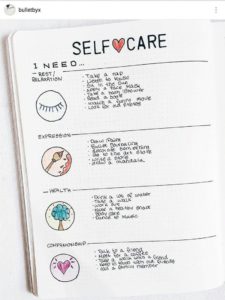
Tip 6. Learn the word “no”
It’s okay to say no! Sometimes taking on too many commitments can overwhelm you and hinder your success. Feeling overwhelmed can make it hard to relax or cope with difficult situations.
Fear of Missing Out (FOMO) is common. You might feel pressured to join activities because your friends are doing them. But FOMO often stems from perceptions, not your true desires.
Tip 7. Get a good night’s sleep
Finally, ensure you get enough sleep to function effectively. Some students think cutting sleep will give them more time to work, but this is counterproductive.
Lack of sleep affects your cognitive skills, hormone regulation, and decision-making abilities. It can lead to ‘sleep debt’, which impacts your future sleep patterns.
The National Sleep Foundation suggests the following sleep ranges:
- School age children (6-13 years): 9-11 hours.
- Teenagers (14-17): 8-10 hours.
- Young Adults (18-25): 7-9 hours.
- Adults (26-64): 7-9 hours.
If you’re short on time, a power nap can give you a quick alertness boost. However, don’t rely on naps as a substitute for proper sleep.
The most important takeaway is to find a time management solution that works for you. Good time management is a skill developed over a lifetime, influenced by your personality, upbringing, and social circle. Reflecting on these factors will help you understand and improve your time management skills.
